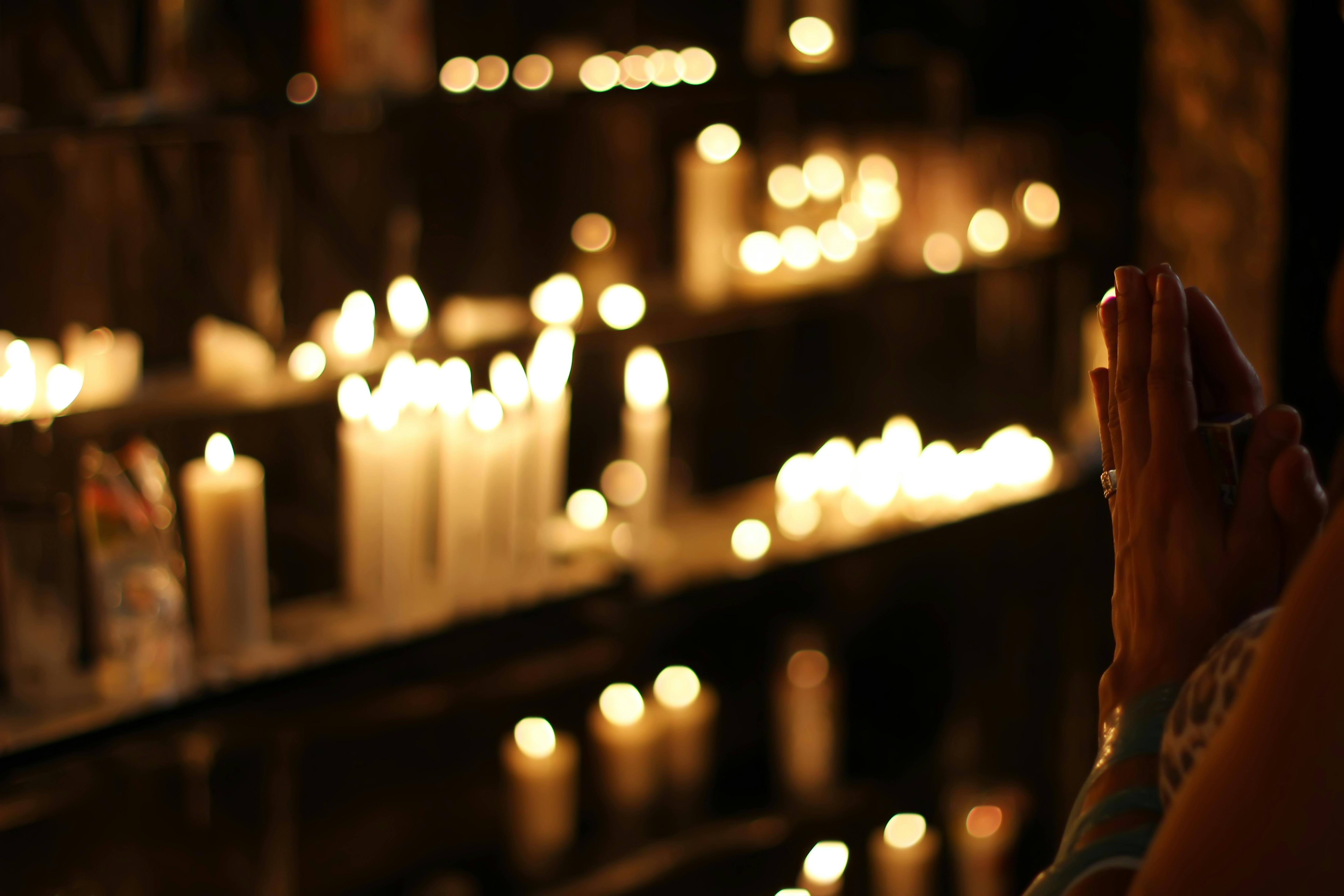How Ordinary Christians Can Build Kingdom Institutions In 2025

The past year was characterized by apocalyptic predictions and institutional demolition. Our presidential candidates issued doomsday warnings about the end of democracy, the middle class, and the economy. Closer to home, some of last year’s most discussed Christian books were also chock-full of fear, calling for Christians to either abandon churches or deconstruct.
Institutions are built on trust, and given that Americans seem to trust everyone less—politicians, doctors, and religious leaders—it’s no surprise institutions are failing and the people they serve are suffering.
I hope this year will mark the nadir of cultural demolition. But even if it doesn’t, Christians must stand against the entropy of the ages by becoming “builders”—by making 2025 the year we ordinary people in ordinary places led and served and built in the burned-down wasteland left by the demolition men.
To do this we must think Christianly about the future and build decisively for the sake of it.
Think Christianly About the Future by Honoring the Past
Recently, political analyst Yuval Levin wrote that generational thinking is virtually impossible in a society that no longer sees itself “as the beneficiaries of [its] fathers’ and mothers’ generosity.” The same can be said for the church. If our forebears are naught but kindling, we cannot help but see ourselves as either victims or liberators instead of as stewards of a generational legacy (buildings, institutions, resources, and ideas).
Christians must stand against the entropy of the ages by becoming ‘builders.’
Because we don’t appreciate the past, we don’t “view ourselves . . . as links in a chain” to the future, Levin argues. This is tragic in any culture, but especially in the church. After all, we’re grafted into a multimillennial story, stretching back to Abraham (Rom. 4:9–11). We sit on the shoulders of giants, in a great cloud of historical witnesses (Heb. 12:1–3).
From such a vantage point, we see the future rooted in the past. Jesus came, died, rose, ascended, and promised to return. Because we know how it happened and what the future holds, the church knows what to build toward and how to build it.
On a practical level, this is why Paul trained Timothy to think at least three generations forward (2 Tim. 2:2). How? By laying down our present interests to focus on making our future institutional homes more trustworthy, organized, healthy, and mission-oriented for the sake of those who will one day benefit.
Think Wisely About the Future by Navigating a Generational Crossroad
So let’s think generationally about the problems before us. The silent generation is largely outside the workforce. The youngest baby boomers turned 60 last year and are moving toward retirement. These men and women were the founding and funding generation of many key churches and institutions. Will they wisely hand off leadership, step into their new roles as sages, and selflessly advise and support young leaders? As boomers age, nonprofits that rely on their generosity will struggle. Are boomers preparing their institutions? Are buildings being paid off? Are institutional savings accounts being filled? Are foundations and trusts being established to support churches?
Gen X (age 45–60 this year) and millennials (29–44), who are largely responsible for the conflagration of the last 15 years, will soon reap the whirlwind they’ve sown. The question is whether there are enough servant leaders in this demographic who aren’t too burned out or disqualified to lead denominations, churches, and nonprofits. Do we have men and women who’ve developed the requisite wisdom to honor legacies, regenerate what’s dying, rebuild what was torn, and preserve what good remains? I believe the answer is yes, and you’ll find them in local communities—we’ll identify them by their investment in Gen Z, in particular.
We should be bullish about Gen Z. The oldest of that cohort are entering their late 20s, but the bulk are in high school, college, and early adulthood. I hear from churches across the country that there’s something special about this generation. On the one hand, they’re plagued by mental health problems (likely induced by screens and COVID-19 lockdowns). But on the other hand, God’s strength is perfected in weakness. These hardships are opportunities. A revival is stirring. This generation is searching. They’re not churched, but they’re also not closed to church. Their young men, in particular, show a growing interest in faith. They’re attracted by positive visions.
Will millennials and Gen X invest heavily in this promising generation so they’re prepared to take responsibility for our institutions in 20 to 30 years? Will we help guide their ambition and passion toward salubrious, virtuous, kingdom-growing ends? Institutions and leaders that aren’t actively investing in Gen Z—and embedding them in offline life—will not be builders of the future.
How can we make sure we are?
Build for the Future
In his plenary address to the 2010 Lausanne Congress, Tim Keller spoke about the different ways the body of Christ changes and resists a culture, from promoting justice to developing artists to integrating faith and work.
Institutions and leaders that aren’t actively investing in Gen Z will not be builders of the future.
In my book Joyful Outsiders, I identify six ways the Bible tells us how to do this. Unsurprisingly, they overlap with Keller’s insights—but rather than applying them to the church body, I present them as roles individuals can embody, thus making them a helpful framework for Christians looking to engage the world around them.
You can probably identify these types of people in your church.
1. Ambassadors, who change society by sharing the gospel. Ambassadors seek to show radical hospitality to those far from God in order to share the gospel and win them to Christ. They understand that unless the Spirit regenerates a human heart, there’s no lasting transformation. If we want to change our communities, we must begin by evangelizing them.
2. Trainers, who change society by changing habits. Trainers develop spiritual disciplines and train others to join them. They understand that the only way to change the world is by the Spirit’s exchanging our readiness to do evil with a readiness to do good. A social order cannot be built without deep virtue, and there’s no deep virtue apart from walking closely with God.
3. Builders, who change society by building institutions. Builders are the entrepreneurs, business owners, and nonprofit leaders who build institutions that generate economic, social, and spiritual flourishing in their local communities. They understand that institutions are the durable forms of our common life and therefore orient them around kingdom values, not the American dream.
4. Advisors, who change society by influencing the influential. Advisors seek to do their work with excellence and are often invited to offer wisdom in important circles. In this way, they affect the future of a society by shaping elite, influential institutions.
5. Artists, who change the world by making beauty. Artists deploy their craft not only to empathize with the pain of the world but also to show the beauty hiding therein. They offer hard-won hope to a society lost in darkness.
6. Protestors, who change the world by challenging injustice. Protestors cannot stay silent in the face of wrongdoing. They’re the first to bandage the wounds of the downtrodden and to challenge those who wounded them. Like Shadrach, Meshach, and Abednego, they understand that sometimes those who hold power need direct confrontation. If we want a more just society, protest must be spoken.
Sometimes we grow into our roles as they’re given to us. Sometimes our roles shift from one season to another. And often we occupy more than one role at a time, depending on the different spheres of our lives.
Knowing our current roles can help us see what to do next. The demolition men offer clarity in a confusing moment—even if it’s the clarity of cynicism and destruction. And so we must offer a different sort of clarity: a clear take on Jesus’s cross-shaped path, a willingness to sacrifice in the present for the future, and a determination to do so for the joy set before us.

